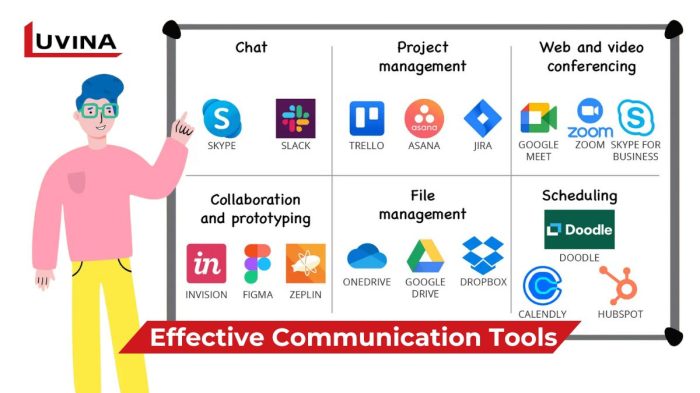In today’s globally interconnected world, businesses are increasingly leveraging the benefits of offshore software product development. This strategic approach offers access to a wider talent pool, cost optimization, and accelerated time-to-market. However, navigating the complexities of offshore development requires careful planning and execution. This comprehensive guide delves into the intricacies of offshore software product development, providing insights into its advantages, challenges, and best practices.

Understanding Offshore Software Development
Offshore software development involves outsourcing the development of software products or applications to a company or team located in a different country. This contrasts with nearshore development, where outsourcing happens to a geographically closer location, and onshore development, where the development team is located within the same country as the client.
Offshore software product development often involves sensitive client data, making robust security measures paramount. Protecting this information requires careful consideration, and a crucial element is choosing the right encryption tools; selecting from a list of best hard drive encryption software is a vital step. This ensures that even if a breach occurs, data remains inaccessible to unauthorized individuals, safeguarding both the client’s assets and the offshore development company’s reputation.

Key Advantages of Offshore Software Development
- Cost Savings: Labor costs in many offshore locations are significantly lower than in developed countries, leading to substantial cost reductions for software development projects. This includes lower salaries for developers, reduced operational overhead, and potentially lower taxes.
- Access to a Larger Talent Pool: Offshore locations often boast a large pool of skilled software developers with expertise in various technologies. This expands the options for finding developers with the specific skills needed for a project.
- Faster Time-to-Market: Many offshore development teams operate in different time zones, allowing for round-the-clock development and faster project completion. This can be particularly beneficial for projects with tight deadlines.
- Increased Focus on Core Business: Outsourcing software development frees up internal resources, allowing businesses to focus on their core competencies and strategic initiatives.
- Scalability and Flexibility: Offshore development teams can be easily scaled up or down based on project needs, offering greater flexibility in managing resources.
Challenges of Offshore Software Development
- Communication Barriers: Differences in time zones, language, and cultural nuances can create communication challenges. Effective communication strategies are crucial to mitigate these challenges.
- Quality Control: Ensuring the quality of the software developed offshore requires robust quality assurance processes and regular communication with the development team.
- Security Risks: Outsourcing software development to a third-party company involves sharing sensitive information, requiring careful consideration of data security and intellectual property protection.
- Time Zone Differences: While time zone differences can be advantageous, they can also complicate real-time collaboration and communication.
- Managing Remote Teams: Effective management of remote teams requires strong leadership skills, clear communication protocols, and the use of project management tools.
Choosing the Right Offshore Development Partner
Selecting a reliable and competent offshore development partner is critical for the success of a project. Consider the following factors:
Key Considerations When Selecting a Partner
- Experience and Expertise: Evaluate the partner’s experience in developing similar software products and their expertise in the required technologies.
- Client Testimonials and References: Check client testimonials and request references to gauge the partner’s reputation and track record.
- Communication and Collaboration: Assess the partner’s communication skills and their ability to collaborate effectively across different time zones and cultures.
- Development Process and Methodology: Understand the partner’s development process and ensure it aligns with your project requirements. Agile methodologies are often preferred for their flexibility and iterative approach.
- Security and Data Protection: Verify the partner’s security measures and their commitment to protecting your data and intellectual property.
- Contractual Agreements: Ensure a comprehensive contract that clearly Artikels the scope of work, payment terms, intellectual property rights, and dispute resolution mechanisms.
Popular Offshore Development Locations
Several countries have emerged as popular destinations for offshore software development, each offering unique advantages:
- India: A large pool of skilled developers, cost-effectiveness, and established infrastructure.
- Eastern Europe (Ukraine, Poland, Belarus): Strong technical expertise, relatively lower costs compared to Western Europe, and good English proficiency.
- China: A vast talent pool and competitive pricing, although communication and intellectual property protection can be concerns.
- Latin America (Mexico, Brazil, Argentina): Growing tech hubs with skilled developers, closer proximity to the US, and often Spanish-speaking.
- Philippines: A strong English-speaking workforce, relatively low costs, and a growing IT sector.
Best Practices for Successful Offshore Software Development
To maximize the benefits of offshore software development and minimize potential risks, it’s crucial to follow best practices:
- Establish Clear Communication Channels: Regular meetings, project management tools, and clear documentation are essential for effective communication.
- Define Clear Project Requirements: Develop a detailed project scope document outlining requirements, timelines, and deliverables.
- Implement Robust Quality Assurance Processes: Regular testing, code reviews, and quality assurance procedures are crucial for ensuring software quality.
- Establish a Strong Project Management Framework: Use a project management methodology like Agile to manage the project effectively and track progress.
- Build Strong Relationships with the Offshore Team: Foster trust and collaboration by building strong relationships with the development team.
- Regularly Monitor Progress and Address Issues Promptly: Closely monitor the project’s progress and address any issues promptly to prevent delays.
Frequently Asked Questions (FAQ)
- Q: Is offshore software development safe for my intellectual property? A: Choosing a reputable partner with strong security measures and including robust intellectual property protection clauses in your contract is crucial. Due diligence is key.
- Q: How can I manage communication challenges with an offshore team? A: Establish clear communication protocols, utilize project management tools with integrated communication features, and schedule regular video conferences.
- Q: What are the typical costs involved in offshore software development? A: Costs vary significantly based on location, developer skills, project complexity, and contract terms. Detailed quotes should be obtained from potential partners.
- Q: How do I ensure the quality of the software developed offshore? A: Implement a rigorous quality assurance process, including regular testing, code reviews, and automated testing. Establish clear quality metrics and acceptance criteria.
- Q: What are the legal and contractual considerations? A: Consult with legal counsel to ensure your contracts address intellectual property rights, payment terms, liability, and dispute resolution.
Conclusion
Offshore software product development offers significant advantages for businesses seeking to reduce costs, access a wider talent pool, and accelerate time-to-market. However, careful planning, due diligence in selecting a partner, and adherence to best practices are crucial for successful project outcomes. By understanding the challenges and implementing effective strategies, businesses can harness the power of offshore development to achieve their software development goals.
References
Call to Action
Ready to explore the benefits of offshore software development for your next project? Contact us today for a free consultation and let us help you find the perfect offshore development partner.
